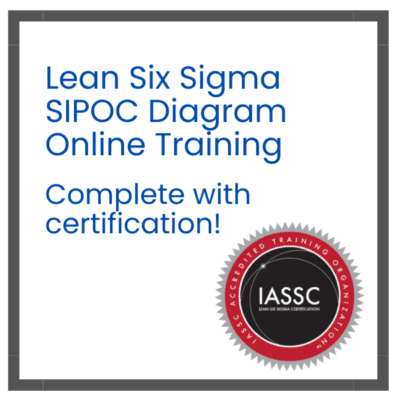Business Process Management (BPM) is a systematic approach to improving organizational workflows and operations. This comprehensive methodology helps companies optimize their business processes through analysis, design, implementation, and continuous monitoring.
The business process management definition encompasses both technology and methodology. BPM combines strategic planning with operational execution to create efficient, measurable workflows. Organizations use BPM to reduce costs, improve quality, and enhance customer satisfaction.
Understanding what is business process management requires recognizing its core components. BPM involves process mapping, automation, monitoring, and optimization. These elements work together to create sustainable competitive advantages.
Table of contents
What is Business Process Management?
Business Process Management (BPM) is a structured approach. It manages and optimizes business processes. A business process is a series of tasks. These tasks achieve a specific goal. For example, processing customer orders is a process. BPM ensures these processes run smoothly.
BPM involves analyzing, designing, and monitoring processes. It uses tools and strategies to improve efficiency. Companies adopt BPM to boost performance. It’s about making operations faster and smarter.
BPM business process management encompasses several key areas:
- Process Analysis: Examining current workflows to identify inefficiencies and bottlenecks
- Process Design: Creating optimized workflows that align with business objectives
- Process Implementation: Deploying new processes using appropriate technology and training
- Process Monitoring: Continuously tracking performance metrics and outcomes
- Process Optimization: Making ongoing improvements based on data and feedback
Public, Onsite, Virtual, and Online Six Sigma Certification Training!
- We are accredited by the IASSC.
- Live Public Training at 52 Sites.
- Live Virtual Training.
- Onsite Training (at your organization).
- Interactive Online (self-paced) training,
Key Features of BPM
- Process Optimization: Enhances workflows for better results.
- Automation: Uses technology to reduce manual tasks.
- Continuous Improvement: Regularly refines processes.
- Data-Driven Decisions: Relies on analytics for insights.
What is a Business Process?
A business process is a set of activities. It delivers a product or service. For instance, hiring employees is a process. It includes steps like job posting and interviews. Each process has inputs and outputs. BPM organizes these steps for efficiency.
Processes vary across industries. Retail focuses on inventory management. Healthcare streamlines patient admissions. Understanding processes is the first step in BPM.
The business process definition includes several characteristics:
- Clear start and end points
- Defined inputs and outputs
- Specific roles and responsibilities
- Measurable outcomes
- Repeatable steps
Business Process Management Lifecycle

BPM follows a clear lifecycle. It ensures systematic process improvement. The lifecycle includes five key phases.
Phase 1: Design
Identify processes needing improvement. Map out each step clearly. For example, document a customer service workflow. This phase sets the foundation.
Phase 2: Model
Create a visual process model. Use flowcharts or BPM software. This shows how tasks connect. It highlights inefficiencies or bottlenecks.
Phase 3: Execute
Implement the designed process. Use BPM tools for automation. Test the process with a small group. Ensure it works as planned.
Phase 4: Monitor
Track process performance with metrics. Use dashboards in BPM systems. Identify delays or errors. Monitoring ensures processes stay effective.
Phase 5: Optimize
Refine processes based on data. Remove redundant steps. Automate repetitive tasks. Optimization boosts efficiency and reduces costs.
This cycle repeats for continuous improvement. It keeps processes aligned with goals.
Also Read: What is Business Process Quality Management?
Types of BPM Software
Modern BPM software provides comprehensive tools for process management and optimization. These business process management tools offer various capabilities to support organizational needs.
Process Modeling Tools: Create visual representations of current and future processes
Workflow Automation: Automate repetitive tasks and routing decisions
Analytics and Reporting: Monitor process performance and identify improvement opportunities
Integration Capabilities: Connect with existing systems and applications
Collaboration Features: Enable team communication and coordination
Popular BPM Systems
Several leading vendors offer robust business process management systems:
- IBM BPM: Enterprise-grade solution with advanced analytics and integration capabilities
- Microsoft Power Platform: User-friendly tools for process automation and workflow management
- Oracle BPM Suite: Comprehensive platform with strong database integration
- Appian: Low-code platform for rapid process development and deployment
- Pega: AI-powered BPM solution with intelligent automation features
- Kissflow: Ideal for small to medium businesses.
Choosing the Right BPM Solution
Selecting appropriate business process management software requires careful evaluation. Consider factors such as:
- Organizational size and complexity
- Budget constraints and total cost of ownership
- Integration requirements with existing systems
- User skill levels and training needs
- Scalability and future growth plans
Benefits of Business Process Management
BPM offers numerous advantages. Here’s why businesses adopt it:
- Increased Efficiency: Streamlines tasks to save time.
- Cost Reduction: Eliminates wasteful steps.
- Improved Quality: Enhances consistency in outputs.
- Better Customer Experience: Speeds up service delivery.
- Agility: Adapts processes to market changes.
These benefits drive organizational success. BPM transforms operations for the better.
Features of BPM Software
- Workflow Automation: Reduces manual tasks.
- Real-Time Analytics: Tracks performance metrics.
- Integration: Connects with existing systems.
- User-Friendly Interface: Simplifies process modeling.
Choosing the right BPM tool depends on needs. Consider scalability and ease of use.
Types of Business Process Management Systems
BPM systems vary by focus. Each suits different organizational needs.
Integration-Centric BPM
Focuses on connecting systems. It automates data flow between apps. For example, linking CRM to accounting software. Ideal for IT-heavy organizations.
Human-Centric BPM
Emphasizes tasks involving people. It streamlines approvals or customer service. User-friendly interfaces are key. Great for service industries.
Document-Centric BPM
Manages document-based processes. Think contract approvals or invoices. It ensures documents move smoothly. Common in legal or financial sectors.
Also Read: What is Sprint Project Management?
Business Process Management Examples
Let’s explore real-world BPM applications.
Example 1: Customer Service
A retail company improves its complaint process. They map the current workflow. BPM software automates ticket assignments. Response time drops by 30%. Customer satisfaction rises significantly.
Example 2: Manufacturing
A factory streamlines production. BPM identifies delays in assembly. Automated alerts reduce downtime. Output increases by 20%. Costs decrease noticeably.
Example 3: Healthcare
A hospital optimizes patient admissions. BPM software tracks bed assignments. Wait times shrink dramatically. Patient care improves overall.
These examples show BPM’s versatility. It works across industries.
BPM vs. Other Management Approaches
BPM differs from other strategies. Let’s compare it briefly.
BPM vs. Project Management
Project management focuses on one-time tasks. BPM targets ongoing processes. For example, launching a product is a project. Processing orders is a BPM focus.
BPM vs. Workflow Management
Workflow management is part of BPM. It handles specific task sequences. BPM covers broader process strategies. BPM includes monitoring and optimization.
Challenges of Business Process Management
BPM has challenges to consider:
- Resistance to Change: Employees may resist new processes.
- High Initial Costs: BPM software requires investment.
- Complex Implementation: Integration can be time-consuming.
- Data Dependency: Needs accurate data for success.
Address these with training and planning. A clear strategy minimizes risks.
How to Implement BPM Successfully?

Follow these steps for effective BPM adoption:
Step 1: Assess Current Processes
Map existing workflows. Identify inefficiencies or bottlenecks. Use employee feedback for insights.
Step 2: Set Clear Goals
Define what success looks like. Aim for faster delivery or lower costs. Align goals with business objectives.
Step 3: Choose the Right BPM Tool
Select software matching your needs. Consider scalability and support. Test tools before committing.
Step 4: Train Employees
Educate staff on BPM software. Provide hands-on training. Ensure everyone understands new processes.
Step 5: Monitor and Optimize
Track performance with analytics. Refine processes regularly. Use data to drive improvements.
Why Use Business Process Management?
BPM drives efficiency and growth. It aligns processes with business goals. Companies adopting BPM see measurable results. For instance, a study showed 40% cost savings. BPM also boosts customer satisfaction. It’s a must for competitive businesses.
Tips for Effective BPM
Maximize BPM success with these tips:
- Start Small: Test BPM on one process.
- Engage Employees: Involve staff in planning.
- Use Analytics: Base decisions on data.
- Review Regularly: Keep processes updated.
Common Misconceptions About BPM
Some myths confuse BPM adoption:
- It’s Only for Large Companies: Small businesses benefit too.
- It’s Just Automation: BPM includes strategy and monitoring.
- It’s Too Complex: Modern tools simplify BPM.
Final Words
Business Process Management represents a fundamental approach to organizational improvement and operational excellence. This comprehensive discipline combines methodology, technology, and management practices to create sustainable competitive advantages.
The bpm technology landscape continues evolving with new capabilities and integration options. Organizations that embrace BPM principles and invest in appropriate business process management systems position themselves for long-term success.
Whether implementing simple workflow automation or comprehensive enterprise process management, organizations must focus on user adoption, continuous improvement, and measurable outcomes. The business process management definition continues expanding as new technologies and methodologies emerge.
Frequently Asked Questions on BPM
What is Business Process Management (BPM)?
BPM is a systematic approach to improving organizational workflows through analysis, design, implementation, and continuous monitoring of business processes.
What does BPM stand for?
BPM stands for Business Process Management, a discipline focused on optimizing organizational processes and operations.
What is the difference between BPM and workflow management?
BPM encompasses the entire process lifecycle including strategy and optimization, while workflow management focuses primarily on task automation and routing.
How do I choose the right BPM software?
Consider factors like organizational size, integration requirements, budget, user skill levels, and scalability needs when selecting BPM software.
What are the main phases of the BPM lifecycle?
The BPM lifecycle includes process discovery, analysis, design, implementation, monitoring, and continuous optimization.
Can small businesses benefit from BPM?
Yes, small businesses can achieve significant benefits from BPM through improved efficiency, reduced costs, and better customer service.
What skills are needed for BPM implementation?
BPM implementation requires business analysis, process modeling, project management, change management, and technical integration skills.
How long does BPM implementation typically take?
Implementation timelines vary based on scope and complexity, ranging from weeks for simple processes to months for enterprise-wide initiatives.



















